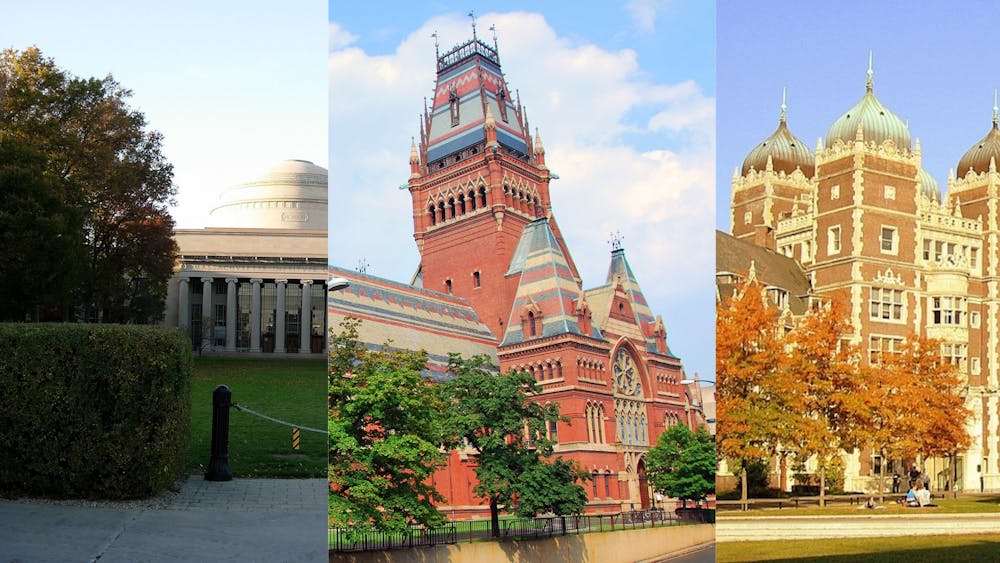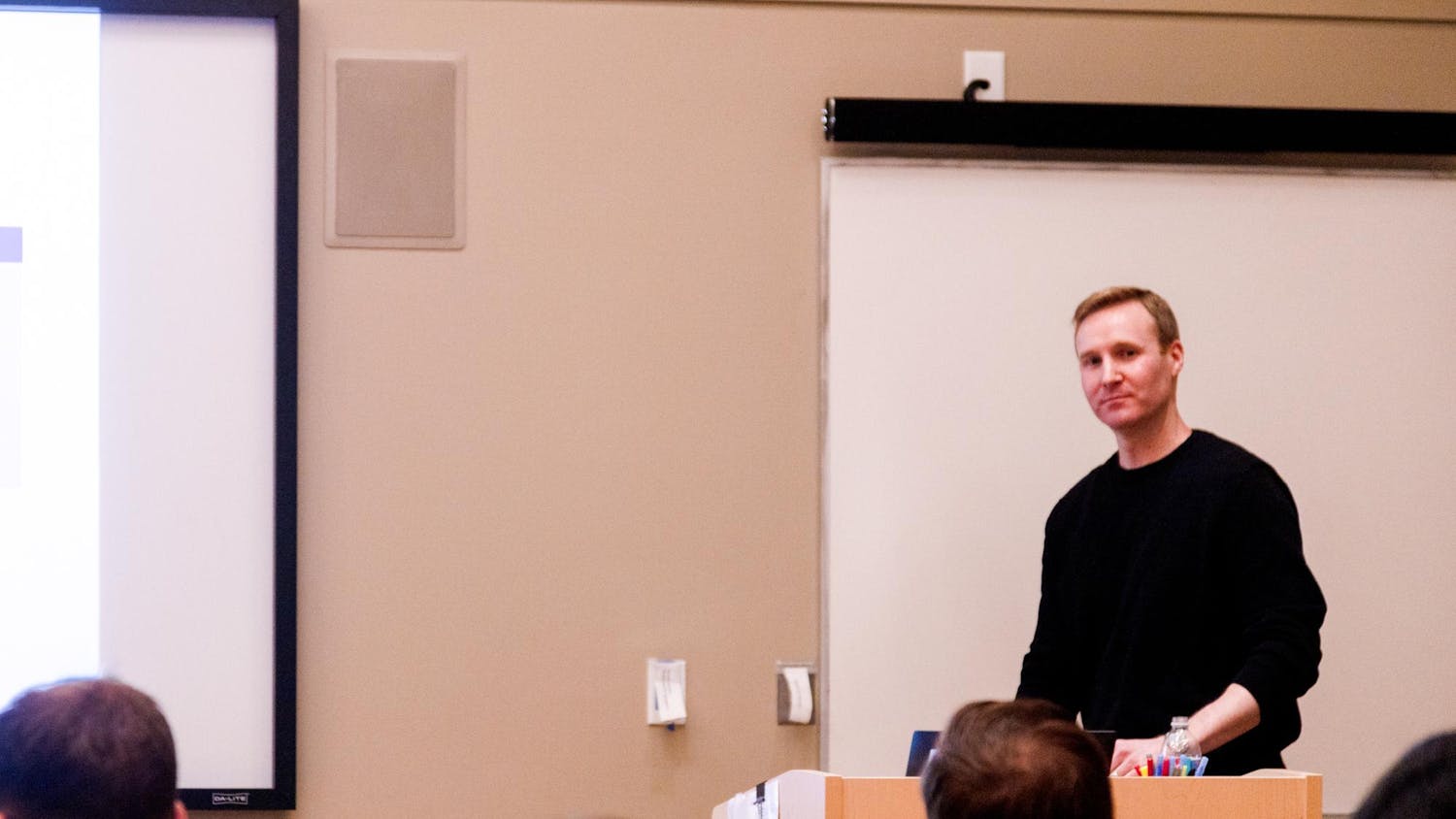Higher education has found a new home in national headlines.
Since early December, the presidents of Harvard and Penn have resigned amid national scrutiny while the Department of Education continues to investigate allegations of antisemitism and Islamophobia on college campuses.
To start the spring semester, The Herald recaps some of the country’s biggest stories in the ever-changing landscape of higher education.
Congressional testimony on antisemitism
On Dec. 5, the U.S. House Committee on Education and the Workforce questioned former Harvard President Claudine Gay, former Penn President Liz Magill and MIT President Sally Kornbluth in a five-hour hearing titled “Holding Campus Leaders Accountable and Confronting Antisemitism.”
The presidents were questioned by Representative Elise Stefanik (R-NY)’s on their Universities’ regulations concerning bullying and harassment, specifically in relation to “calling for the genocide of Jews.”
“The rules around bullying and harassment are quite specific,” Gay said. “And if the context in which that language is used amounts to bullying and harassment, then we take … action against it.” Magill and Kornbluth answered similarly.
Though Penn and Harvard were prepared for questions on free speech by a slew of lawyers, their responses prompted swift and severe backlash from experts.
Steven Davidoff Solomon, law professor at University of California at Berkeley, said in the New York Times that the college presidents appeared to be “prepared to give answers in the court — and not a public forum.”
Shortly after the hearing, Stefanik, alongside others, called for the resignation of all three presidents.
At their respective universities, some alums threatened to withhold funding until the schools addressed antisemitism. Additionally, the House committee, which currently holds a Republican majority, officially opened an investigation into “rampant antisemitism” that they alleged was occurring on college campuses.
Gay and Magill released video statements apologizing for their responses. Kornbluth followed her testimony with a call for unity and “standing up against hate of any kind.”
Two days later, Magill resigned from her post, according to a letter the university Chair of the Board of Trustees Scott Bok sent to the Penn community. Minutes later, Bok resigned, saying it was “the right time to depart.”
Magill’s tenure lasted less than two years, the shortest of any Penn president.
“One down. Two to go,” Stefanik wrote in a statement that same day, adding that “this is only the very beginning of addressing the pervasive rot of antisemitism that has destroyed the most ‘prestigious’ higher education institutions in America.”
In early December, the governing bodies of Harvard and MIT released statements supporting the presidents’ leadership.
More trouble for Claudine Gay
On Dec. 10 — five days after the hearing on Capitol Hill — conservative activist Christopher Rufo published allegations of plagiarism levied against Gay.
Fellows of the corporation conducted an independent review of the allegations after Gay learned of them. A week after the review, they found instances of “duplicative language without appropriate attribution.” Gay requested corrections to the works.
Over the following two weeks, the Harvard corporation’s internal support for Gay began to falter, according to an investigative piece published by the New York Times. On a Dec. 27 phone call with Penny Pritzker, the leader of Harvard University’s governing board, Gay promised to resign amid the board’s newfound and faltering outlook on her future at the university.
On Jan. 2, Gay resigned.
“The resignation of Harvard’s antisemitic plagiarist president is long overdue,” Stefanik wrote in a statement. “This is just the beginning of what will be the greatest scandal of any college or university in history.”
On Jan. 3, Gay wrote a guest essay in the New York Times where she admitted mistakes in her response to the Israel-Palestine war but warned that “this was merely a single skirmish in a broader war to unravel public faith in pillars of American society.”
“The campaign against me was about more than one university and one leader,” she wrote.
In the aftermath, faculty at many universities have raised concerns about threats to their academic freedom and the politicization of higher education.
Academic freedom is “primarily a faculty member’s right to do research, teach, and speak extramurally without fear of sanction by the institution,” Luther Spoehr, senior lecturer emeritus in education, wrote in an email to The Herald. “It’s expected that the institution will protect the faculty from outside pressures.”
Spoehr drew a connection between the current climate and that of McCarthyism in the 1950s, in which academics were called in front of Congress and questioned about alleged ties to the Communist Party.
What happens next?
In the wake of Gay’s resignation, campuses continue to grapple with ongoing violence in Israel and Gaza. Over 25,000 people in Gaza and around 1,200 people in Israel have been killed since Oct. 7, the Associated Press reported.
Some conservative voices, including Stefanik, maintain a spotlight on college campuses. “I will continue rooting out the rot of antisemitism that is plaguing America’s colleges and universities,” she posted to X, formerly known as Twitter, “this is just the beginning.”
Kornbluth, who is Jewish, is weathering the storm of controversy with no credible threats against her employment so far. Unlike Magill and Gay, she retained her position.
With an ongoing Congressional investigation into antisemitism on college campuses, the landscape of higher education stands at a tipping point. On Jan. 10, the presidents of Harvard, Penn, MIT and Cornell received a letter from the House Ways and Means Committee suggesting that their universities may lose their tax-exempt status over concerns of antisemitism and “lackluster responses by your respective universities to Hamas’ attacks.”
That same week, six Jewish students at Harvard filed a lawsuit accusing the university of not properly addressing “severe and pervasive” antisemitism on campus.
At Brown, the administration has taken steps to protect students from discrimination following recent concerns about antisemitism and Islamophobia on campuses nationwide.
In a Dec. 5 faculty meeting, President Christina Paxson P’19 P’MD’20 stated that Brown is considering enhancing Title VI policies, which prohibit “discrimination on the basis of race, color and national origin in programs and activities receiving federal financial assistance,” according to the Department of Justice.
Brown has also seen a rise in student activism surrounding the Israel-Palestine war, with many activists calling for divestment from “Israeli military occupation” and a ceasefire in Gaza. Two sit-ins in University Hall have led to the arrest of 61 students — 41 of whom are still facing trespassing charges.
The University maintains they do not “directly invest in any weapons manufacturers.”
Students returning to College Hill for the new semester are facing one of the most tumultuous environments in higher education.
“At the moment,” Spoehr wrote, “I see no convincing signs that the end of such bitter disagreements is anywhere in sight.”

Owen Dahlkamp was the managing editor of newsroom on The Herald's 135th Editorial Board, overseeing the paper's news operations. Hailing from San Diego, CA, he is concentrating in Political Science and Cognitive Neuroscience with an interest in data analytics. In his free time, you can find him making spreadsheets at Coffee Exchange.

Ryan Doherty was the managing editor of digital content and vice president of The Herald's 135th editorial board. He is a junior from Carmel, NY who is concentrating in chemistry and economics. He previously served as a university news and science & research editor, covering faculty and higher education.





